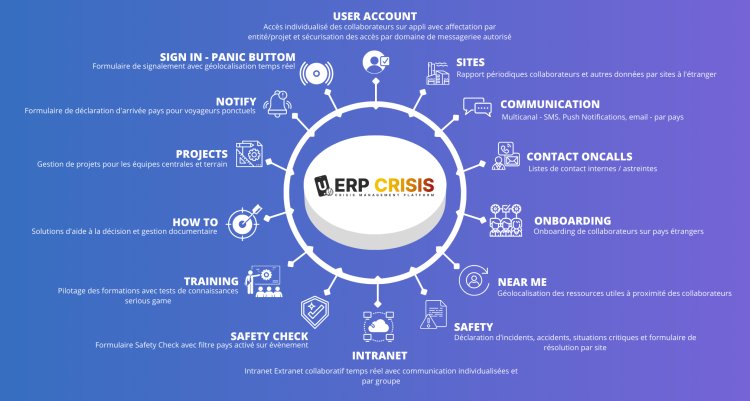In the labyrinth of modern business operations, crises are inevitable. Whether it's a natural disaster, a cyberattack, or a sudden supply chain disruption, businesses must be prepared to navigate through tumultuous waters. This is where Enterprise Resource Planning (ERP) systems come into play. Designed to integrate and manage core business processes, ERP systems can be a linchpin in crisis management, offering solutions that are as robust as they are versatile.
Understanding ERP Systems
ERP systems are comprehensive software platforms used to manage and integrate the crucial functions of a business, including finance, HR, manufacturing, supply chain, services, procurement, and others. By consolidating these processes into a single unified system, ERPs enhance efficiency and provide a real-time view of data that is critical for decision-making.
The Role of ERP in Crisis Management

1. Centralized Information Hub
In a crisis, the speed and accuracy of information flow are paramount. ERP systems act as centralized information hubs where data from various departments is collected and made accessible in real time. This ensures that decision-makers have access to accurate and up-to-date information, enabling them to make informed decisions quickly.
- Real-time Data Access: Having immediate access to data allows businesses to monitor the situation as it evolves and respond appropriately.
- Integrated Communication: Different departments can communicate seamlessly through the ERP system, ensuring that everyone is on the same page.
2. Business Continuity Planning
ERP systems support business continuity planning by providing tools that help identify potential risks and develop strategies to mitigate them. Through scenario analysis and simulation, businesses can prepare for various crisis situations and ensure minimal disruption to operations.
- Risk Assessment: Identify vulnerabilities in the business process.
- Simulation Tools: Test the effectiveness of crisis response strategies in a controlled environment.
3. Supply Chain Management
Supply chains are often the most vulnerable aspect of a business during a crisis. ERP systems provide end-to-end visibility of the supply chain, allowing businesses to anticipate disruptions and take proactive measures.
- Inventory Management: Track inventory levels in real time to avoid shortages or overstocking.
- Supplier Relationship Management: Maintain strong relationships with suppliers to ensure a steady flow of materials.
4. Financial Management
Financial stability is crucial during a crisis. ERP systems offer robust financial management tools that help businesses maintain liquidity and manage cash flow effectively.
- Budgeting and Forecasting: Create accurate financial forecasts to plan for the future.
- Expense Management: Monitor and control expenses to avoid unnecessary spending.
5. Human Resources Management
Crisis situations often require quick decisions regarding workforce management. ERP systems streamline HR processes, making it easier to manage employee data, payroll, and compliance.
- Employee Tracking: Keep track of employee availability and allocate resources efficiently.
- Payroll Management: Ensure timely and accurate payroll processing even during disruptions.
Case Studies
Example 1: Natural Disasters
Consider a manufacturing company hit by a major earthquake. An ERP system can help by providing real-time data on inventory levels, enabling the company to assess the impact on production. The system's communication tools can be used to coordinate with suppliers and customers, ensuring that everyone is informed about the situation and any changes in delivery schedules.
Example 2: Cybersecurity Breaches
In the event of a cybersecurity breach, an ERP system can help identify which parts of the business have been affected. It can also assist in implementing security protocols across the organization and ensuring that sensitive data is protected.
Summary
In today's unpredictable business environment, the ability to respond swiftly and effectively to crises is crucial. ERP systems provide the tools and insights needed to manage crises efficiently, ensuring business continuity and minimizing disruption. By centralizing information, supporting business continuity planning, managing supply chains, maintaining financial stability, and streamlining human resources, ERP systems are invaluable assets in the arsenal of modern crisis management.
Investing in a robust ERP system is not just about improving day-to-day operations; it's about safeguarding the future of your business against the inevitable crises that lie ahead. In a world where uncertainty is the only certainty, having an ERP system can be the difference between chaos and control.



















